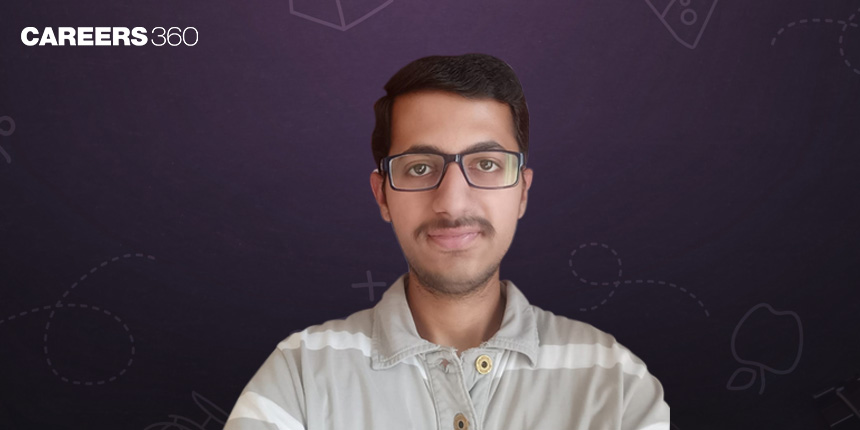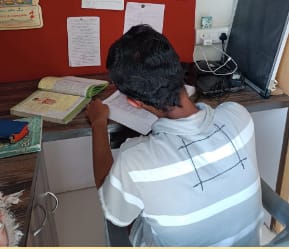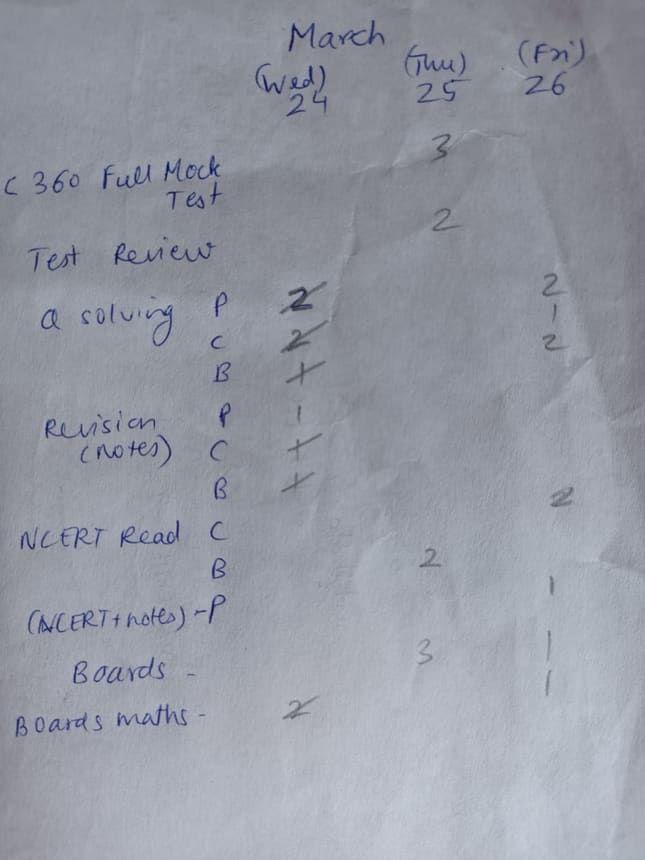Virohan Allied & Healthcare Programs
Allied & Healthcare programs | 20+ Partner Universities & Institutes | 98% placement record
Regards to every NEET aspirant reading this article. I will share my two-year NEET preparation journey with you through this article so that you can extract useful tips and points from this and modify them according to your comfort to achieve the best result that you are capable of.

So, my journey started in Class 11 with one of the premier NEET coaching centres of Nagpur. Because I did not have any pre-foundation training before, this was completely new for me. We were taught by really good teachers although later, due to the pathetic management of the institution, teachers started leaving the academy in large numbers by February 2020, there was terrible mismanagement. We also had tests twice in a month of 720 marks.
Speaking about my approach, I was very clear about my goals from the start. Right from the first day I took studies very seriously and went all guns blazing. I used to attend lectures seriously, stay back after the class and study or ask doubts. Sometimes I would slack off and go with my friends during this period but I made sure these instances were limited.
 NEET Prep: Dhruv Mehta at his desk at home
NEET Prep: Dhruv Mehta at his desk at home
I would reach home by 6 pm, and again study till I slept, giving myself one hour for dinner.
During weekends I made extra effort to utilise all the time I had in studying. I made notes during the lectures, revised them regularly, solved MCQs in the booklets given to us, sometimes even issued reference books from the library and solved questions from them and tried my best to be ready with the syllabus of every test that took place.
My marks ranged from 400-500 during these nine months of offline classes.The coaching centre’s booklets had every topic given in detail to the Joint Entrance Examination level. I tried to solve the questions completely, neglecting only the few that we were told were of JEE Advanced level. For Biology, after we reached the “Morphology in Flowering Plants” chapter , I switched my focus entirely to NCERT textbooks. For the NEET Physics syllabus and Chemistry, I used Errorless Publication books for solving and sometimes different publications too, which were random choices.
Then, there was the unfortunate Covid-19 pandemic and the first lockdown. Not realising what a serious issue this was at the start, I again went at my preparation with full force, revising and perfecting my understanding of all topics I felt I was weak in and also covering what was left. Now, the coaching academy didn’t take care of our online lectures properly at all. So, after waiting two-three months, once I realised I had to look for other resources, I started on a different path. I started watching video lectures of PhysicsWallah on YouTube for Physics and Physical Chemistry. I watched lectures, took detailed notes, revised regularly according to short-term timetables, solved almost all MCQs from Errorless books and tried to have my doubts cleared through online sites like Doubtnut.
But I had some very major concerns. First, I didn’t have good and reliable sources for Inorganic Chemistry and Biology; secondly, all my doubts weren’t getting solved online and too much was getting piled up . Then my father found the online coaching programme of Careers360 and I got myself enrolled. Things got organised and structured hereon for me. This website had complete study material required for NEET preparation along with personal mentorship.
So, I saw lectures on Biology and Inorganic Chemistry on the portal, again read the NCERT textbooks thoroughly, and solved MCQs from Errorless. I made deadlines for myself to finish chapters with a final goal to finish the entire syllabus of Class 12 as soon as possible. I went on to complete the entire syllabus by September 2020.
A month or two before, on the suggestion of my mentor, I started making short notes for each chapter of Physics, Organic Chemistry and Physical Chemistry. My short notes included all the formulae, very important theory points and the shortcuts and tricks of question solving that I used to get after solving lots of MCQs from a particular chapter.
After September 2020, with the help of my father and mentor, I made a timetable for revision. My initial goal was to revise the entire two-year syllabus at least twice. Lots of short-term timetables were made in order to fulfil the long term goal. Here, I must mention that many times I could not reach my short-term goals within the set deadline and had to modify them every now and then. This can be very frustrating for aspirants but it happens and one has to learn how to deal with it patiently.
The first time I revised my class notes along with the chapter in the NCERT. Then onwards, almost every time I revised from the short notes I had made along with the NCERT. I used to solve MCQs from the question bank on the portal and in later stages of revision, I worked on questions that I couldn’t solve the first time and had marked.
I would also like to describe my routine during the lockdowns.
I used to get up at around 6 am and sleep by 11 pm. I had set an every-day goal to study a minimum of 10 hours daily . I must admit I could not reach the goal every day but I did. There will be days where you do not feel like studying. In 90% of those times, you have to sit for studying even if you don’t want to. In the other 10%, you may feel like that work is becoming very unproductive. In that case, you can take a one-day or a half-day break. I used to do the same.
 NEETPrep: A section of Dhruv's time-table
NEETPrep: A section of Dhruv's time-table
On an every-day basis, take regular small breaks of 10-15 minutes after a 1.5–2 hour study session. Personally, I think each student is comfortable with a particular study pattern and he/she must find and abide by their own way of studying and taking breaks.
One very important point is that you mustn’t compromise on your sleep. I feel six-seven hours of sleep is mandatory. I never slept less during my two years of preparation.
From here I would like to give you suggestions and share my experiences in points:
Allied & Healthcare programs | 20+ Partner Universities & Institutes | 98% placement record
I would conclude by stating that I feel each person must hunt for strategies and make timetables that suit them. We can take suggestions from others and even try them, but not copy the steps. Every individual is different with different capabilities. If one is honest with oneself, studies seriously over the two years and always keeps on correcting the mistakes , then no-one can stop him/her from getting an excellent result in NEET. I feel this preparation is all about perseverance, hard work and most importantly, patience. There exists no shortcut.
On Question asked by student community
Hi Gawade,
please refer to this article -
https://medicine.careers360.com/articles/neet-ug-mock-tests
You can find the mock test link here
Government Medical Colleges in states like Rajasthan, Uttar Pradesh, Madhya Pradesh, Bihar, Haryana, Punjab, Gujarat, Maharashtra
Hi Arti,
Please refer to these links
Weightage:
https://medicine.careers360.com/articles/neet-biology-chapter-wise-weightage
High-weightage chapters:
https://medicine.careers360.com/articles/neet-2026-high-weightage-chapters
Do or Die Biology:
https://medicine.careers360.com/articles/do-or-die-chapters-in-biology-for-neet
Hindi syllabus:
https://medicine.careers360.com/hi/articles/neet-syllabus
Most Scoring Concepts eBook (free PDF):
https://medicine.careers360.com/download/ebooks/neet-most-scoring-chapters-topics-based-on-past-5-year-analysis
You still have enough time. For NEET 2026 (drop year, 3 months left), focus on:
NCERT linebyline for highweightage chapters (Human Physiology, Plant Physiology, Cell, Biomolecules, Biological Classification, Plant/Animal Kingdom, Genetics, Ecology)
Daily chapterwise MCQs + PYQs and weekly full mocks with proper analysis
Useful Careers360 links for planning:
NEET
Yes, open category students can also appear in the NEET exam. Candidates must check the detailed eligibility criteria in the NEET information brochure. Applicants from the open category have to pay the NEET form fees for Rs. 1700.
Allied & Healthcare programs | 20+ Partner Universities & Institutes | 98% placement record
Get Job-Ready with New-Age Allied Health Programmes
Get Job Ready in Healthcare | Employability-Focused Programs
Amongst top 3% universities globally (QS Rankings) | Wide Range of scholarships available
Ranked #19 by NIRF, NAAC A++ Accredited | Recognized by dental council of India
Ranked #18 by NIRF, NAAC A++ Accredited | Unmatched clinical exposure with over 7 lakh patients yearly